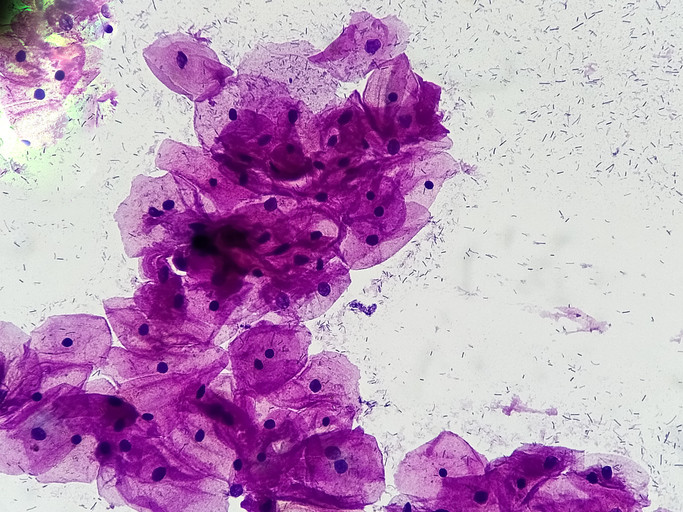profile/5170OIG3.jpeg.webp
Healthwatch

Late-stage Cervical Cancer On The Rise: What To Know
~4.1 mins read

When caught early through routine screening, cervical cancer is curable. In the US, roughly 92% of women with early-stage cervical cancer survive five years or longer, compared with only 17% of women with late-stage cervical cancer. So recent research that shows a steep rise in new cases of advanced cervical cancer among white Southern women, and underscores the disproportionate burden of advanced cases among Black Southern women, is worrisome.
What factors might be at play, and how can people best protect themselves? Two Harvard experts share their insights.
Human papilloma virus and cervical cancer: What to know
Human papilloma virus (HPV) causes nine out of 10 cervical cancers. In 2023, 13,960 women in the US will be diagnosed with cervical cancer and 4,310 will die from it, according to American Cancer Society estimates.
Pap test screening can detect this cancer early, when it's easiest to treat. And testing for HPV has been approved as an additional screening test for cervical cancer. It can be used alone or with a Pap test.
What did the research focus on and learn?
The study was published online in International Journal of Gynecological Cancer. Researchers combed through cervical cancer data submitted to the United States Cancer Statistics program between 2001 and 2018, and national survey findings on Pap screening and HPV vaccination. During this period, nearly 30,000 women were diagnosed with late-stage cervical cancer, which has spread to other parts of the abdomen and body.
Early-stage cervical cancer cases have been dropping for most groups in the US in recent years. But advanced cervical cancer cases have not declined within any US racial, ethnic, or age group over the last 18 years.
New diagnoses of advanced disease rose 1.3% annually during the study period. Southern white women ages 40 to 44 saw an annual rise of 4.5% in advanced cases. Southern Black women ages 55 to 59 were diagnosed nearly twice as often as white women with early and advanced cases.
What else is important to understand?
The new study showed that women living in the South are less likely to be vaccinated against HPV or screened for cervical cancer. But lower screening rates likely don't fully explain the rise in late-stage cases in that region, says Dr. Ursula Matulonis, chief of the Division of Gynecologic Oncology at Dana-Farber Cancer Institute.
"Most cervical cancer cases continue to be diagnosed early," Dr. Matulonis says. "These new findings suggest that cases involving a more aggressive cell type called adenocarcinoma are also increasing. Often found higher up in the cervical canal, this is harder to detect with a Pap smear."
Older women are especially vulnerable. Rates of late-stage cervical cancer are higher — and survival is worse — among women 65 and older than among younger women, according to a study in California. One possible reason? They may not have received the recommended number of screening tests with normal results before they stopped having Pap smears, says Dr. Sarah Feldman, a gynecologic oncologist at Brigham and Women's Hospital.
HPV vaccine protects against cervical cancer
The HPV vaccine is FDA-approved for use in females ages 9 through 26. The first group of vaccinated adolescents, now in their 20s, have clearly benefited: invasive cervical cancer rates among women 20 to 24 dropped by 3% each year from 1998 through 2012.
"That's pretty impressive," Dr. Matulonis says. "And those decreases span race and ethnicity, which isn't always the case in women's cancers."
What steps can you take to protect against cervical cancer?
Dr. Feldman offers this guidance around cervical cancer prevention and detection.
An HPV infection, rather than sexual activity alone, is the factor that places people at risk, Dr. Feldman says.
"A lot of older women may have a new sexual partner in their 50s. A new HPV infection raises risk for cervical cancer roughly 20 years later," Dr. Feldman says. "If HPV test results are persistently negative through age 65, the risk of developing cervical cancer in your 70s is low."
Source: Harvard Health Publishing
profile/5170OIG3.jpeg.webp
Healthwatch

Can Saw Palmetto Treat An Enlarged Prostate?
~3.3 mins read
Scientific evidence shows little or no benefit.


Marketed as a natural remedy for an enlarged prostate, saw palmetto is a top-selling dietary supplement. It's extracted from berries that grow on saw palmetto palm trees, which are native to the southeastern United States.
By one estimate, more than a third of all US adults who take supplements use saw palmetto specifically. Some evidence suggests that saw palmetto has anti-inflammatory properties, and its use as folk medicine dates back over a century.
But experts at Harvard say men should view its supposed benefits for prostate health skeptically. "Saw palmetto is unlikely to harm you, but it probably won't provide any major benefits either," says Dr. Heidi Rayala, an assistant professor of urology at Harvard Medical School and Beth Israel Deaconess Medical Center.
BPH and the potential effect of saw palmetto
It's common for men to develop an enlarged prostate, or benign prostatic hyperplasia (BPH), when they get older. BPH impedes urinary flow through the urethra, causing obstructive symptoms that can worsen with time.
Just how saw palmetto might act on the prostate to improve symptoms isn't entirely clear, however. Some evidence suggest it mimics the effects of certain drugs used for treating BPH, including 5-alpha reductase inhibitors such as finasteride (Proscar), which shrink the prostate gland.
In the US, no herbal supplement is approved as BPH treatment. The American Urological Association cautions that studies backing saw palmetto for treating enlarged prostates have numerous flaws, including short durations and a lack of placebo controls. Most of the supporting evidence comes from small studies paid for by companies that sell dietary supplements.
What do randomized clinical trials show?
The best-conducted research shows no benefits from saw palmetto for BPH. During one study, 225 men with moderate to severe BPH were treated with either a placebo or 160 milligrams (mg) of saw palmetto, taken twice daily for a year. The investigators detected no difference in outcomes, but they also acknowledged that doses tested in the study may have been too low to produce measurable effects.
So, during a larger subsequent study, researchers tested higher doses of saw palmetto ranging up to 320 mg given three times a day. Nearly 370 men ages 45 and older were randomized to treatment or placebo groups. After year and a half, men in both groups reported feeling either no worse or a little better. Remarkably, 40% of the placebo-treated men said symptoms had improved, suggesting the simple act of taking a pill could have something to do with the supplement's perceived benefits.
Dr. Michael Barry, a professor of medicine at Harvard Medical School, led the study. He urges men to consult with their doctors before trying saw palmetto, mainly to rule out other potential causes of urinary obstruction, which can include bladder or prostate cancer. And saw palmetto may interfere with the blood's clotting ability, making it risky for men who take blood thinners.
Recent results and comments
The latest evidence on saw palmetto and BPH comes from a Cochrane Review of 27 placebo-controlled studies enrolling a combined 4,656 participants. Results published in 2024 showed no improvement in urinary symptoms or quality of life from taking saw palmetto (alone or with other herbal supplements) over durations ranging up to 17 months.
"If the ingredients in these herbal products worked well for urinary symptoms, drug companies would have already had them approved by the FDA as a medicine that insurance companies would have to cover," Dr. Rayala said. "It's okay to take them, but just be cautious about spending too much of your own money on these alternatives."
"It is easy to understand why so many find taking a naturally occurring supplement for treating urinary difficulties in middle age appealing," said Dr. Marc Garnick, the Gorman Brothers Professor of Medicine at Harvard Medical School and Beth Israel Deaconess Medical Center, and editor in chief of the Harvard Medical School Guide to Prostate Diseases. "However, evidence of effectiveness with saw palmetto is lacking, and its use for BPH and other common urinary symptoms without a full evaluation of the potential cause should be discouraged."
Advertisement

Link socials
Matches
Loading...

